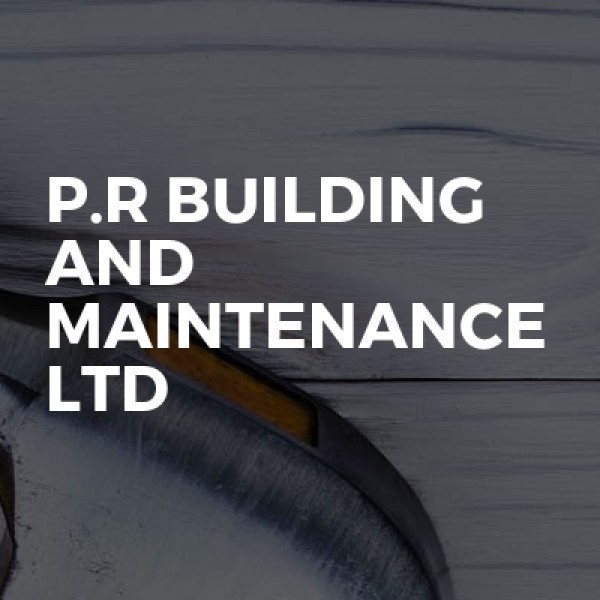Garage Conversions in Widnes
Welcome to MIPA Solutions Ltd, your premier choice for building and refurbishment services in Sankey Bridges and throughout Che... read more »
Welcome to Paul Rossiter Construction Ltd, your trusted partner for all building needs in Liverpool and across Mersey... read more »
Welcome to Omnis Developments Ltd, your go-to experts for all building and renovation needs in Tower Hill and across Merseyside. As a lea... read more »
Renown Building Maintenance Ltd is a premier construction company based in the heart of Sankey Bridges,... read more »
National Plumbing And Heating is a renowned Bruche-based company, proudly serving the vibrant community of Cheshire. Spe... read more »
AJBS: Your Trusted Tradespeople in Wigan and Greater Manchester
Welcome to AJBS, your go-to experts for all thin... read more »
RC Roofing And Property Repair Ltd is a distinguished tradespeople business nestled in the heart of The Valley, proudly... read more »
Welcome to Bespoke Designs, your go-to experts for transforming spaces in Calderstones and across Merseysi... read more »
Welcome to ORB Lofty Construction, your go-to experts for all building and renovation needs in the picturesque town of Whitby and through... read more »
Welcome to Exquisite Manchester Ltd, your go-to solution for all tradespeople services in Congleton and throughout Cheshire. Wh... read more »
Platinum Builders & Developers Ltd, nestled in the bustling heart of Sandhills, is your premier choice for all construct... read more »
Welcome to Olliebrad Building Services, your go-to experts for all building needs in Hindley Green and the Greater Manchester area. Speci... read more »
Lee Leatherbarrow Building and Roofing is a premier choice for property maintenance in Broad Oak, proudly serving the Me... read more »
P&M Joinery And Building Services, nestled in the vibrant community of Edge Hill, is your premier choic... read more »
Welcome to LS Construction (North West) Limited, your premier choice for expert building services in Hulme and throughout Cheshire. As sp... read more »
P.R Building And Maintenance Ltd is a reputable company based in the heart of Wigan, proudly serving the Greater Manches... read more »
Welcome to Guy Nixon Groundworks Ltd, your premier choice for extension builders, builders, home office conversions, garage conversions,... read more »
Paul Loughran Builders: Leading Builders in Ford, Merseyside
Welcome to Paul Loughran Builders, your premier cho... read more »
Welcome to Goldstone Construction, your premier choice for top-notch building services in Wistaston Green and across Cheshire. Specialisi... read more »
ED Construction NW Limited is a prem... read more »
Search Garage Conversions in places nearby
Understanding Garage Conversions in Widnes
Garage conversions in Widnes have become increasingly popular as homeowners seek to maximise their living space without the hassle of moving. Whether you're looking to create a new bedroom, office, or playroom, converting your garage can be a cost-effective solution. This article will guide you through the ins and outs of garage conversions, ensuring you make informed decisions every step of the way.
The Benefits of Garage Conversions
Converting a garage offers numerous advantages. Firstly, it increases your home's living space, providing an opportunity to create a room that suits your needs. Secondly, it can significantly boost your property's value, making it an attractive investment. Lastly, garage conversions are often more affordable than building an extension, saving you both time and money.
Increased Living Space
One of the primary reasons homeowners opt for garage conversions is the additional living space they provide. Whether you need an extra bedroom, a home office, or a playroom for the kids, a garage conversion can cater to your specific requirements. This added space can enhance your quality of life, offering a more comfortable and functional home environment.
Boosting Property Value
Another significant benefit of converting your garage is the potential increase in property value. A well-executed garage conversion can add up to 20% to your home's value, making it a wise investment. Prospective buyers often seek homes with versatile living spaces, and a converted garage can be a major selling point.
Cost-Effective Solution
Compared to building an extension, garage conversions are generally more cost-effective. They utilise existing structures, reducing the need for extensive construction work. This not only saves money but also minimises disruption to your daily life. Additionally, garage conversions typically require fewer permits and approvals, streamlining the process.
Planning Your Garage Conversion
Before embarking on a garage conversion, careful planning is essential. This involves assessing your needs, setting a budget, and understanding any legal requirements. Proper planning ensures a smooth conversion process and helps you achieve the desired outcome.
Assessing Your Needs
Start by determining the purpose of your garage conversion. Consider how the new space will be used and what features are necessary to accommodate those needs. For instance, if you're creating a home office, you'll need adequate lighting, electrical outlets, and possibly soundproofing. Clearly defining your needs will guide the design and layout of the conversion.
Setting a Budget
Establishing a budget is a crucial step in the planning process. Consider all potential costs, including materials, labour, and any necessary permits. It's wise to set aside a contingency fund for unexpected expenses. A well-defined budget will help you make informed decisions and prevent overspending.
Understanding Legal Requirements
Garage conversions in Widnes may require planning permission, depending on the scope of the project. It's important to check with your local council to determine if any permits are needed. Additionally, building regulations must be adhered to, ensuring the conversion is safe and compliant. Consulting with a professional can help navigate these legalities.
Designing Your Garage Conversion
The design phase is where your vision comes to life. Consider the layout, aesthetics, and functionality of the new space. A well-thought-out design will enhance the usability and appeal of your garage conversion.
Layout Considerations
When designing the layout, think about how the space will be used and the flow of movement within the room. Ensure there's enough space for furniture and that the layout supports the intended purpose. For example, if you're creating a bedroom, consider the placement of the bed, storage, and any additional furniture.
Aesthetic Choices
The aesthetics of your garage conversion should complement the rest of your home. Choose colours, materials, and finishes that create a cohesive look. Consider incorporating natural light through windows or skylights to make the space feel bright and inviting.
Functional Features
Functionality is key in any garage conversion. Ensure the space is equipped with the necessary features to support its use. This may include heating, cooling, plumbing, and electrical systems. Additionally, consider storage solutions to keep the space organised and clutter-free.
Executing the Conversion
With a solid plan and design in place, it's time to execute the conversion. This involves hiring professionals, managing the construction process, and ensuring quality workmanship.
Hiring Professionals
While some homeowners may choose to undertake a garage conversion as a DIY project, hiring professionals is often advisable. Experienced contractors can ensure the work is completed to a high standard and in compliance with regulations. When selecting a contractor, check references, review past projects, and obtain multiple quotes to find the best fit for your needs.
Managing the Construction Process
Effective management of the construction process is crucial to the success of your garage conversion. Maintain open communication with your contractor, regularly inspect the work, and address any issues promptly. Staying involved in the process will help ensure the project stays on track and meets your expectations.
Ensuring Quality Workmanship
Quality workmanship is essential for a successful garage conversion. Insist on high standards and don't compromise on materials or finishes. A well-executed conversion will not only enhance your living space but also add value to your property.
Common Challenges and Solutions
Garage conversions can present challenges, but with careful planning and problem-solving, these can be overcome. Understanding potential obstacles and their solutions will help you navigate the conversion process smoothly.
Dealing with Limited Space
Garages often have limited space, which can be a challenge when designing a functional room. To maximise space, consider multi-functional furniture, built-in storage, and clever layout solutions. Utilising vertical space and choosing compact furniture can also help make the most of a small area.
Addressing Structural Issues
Structural issues, such as dampness or inadequate insulation, can arise during a garage conversion. Address these problems early to prevent future complications. Waterproofing, insulation, and proper ventilation are essential to creating a comfortable and durable space.
Ensuring Adequate Lighting
Garages often lack natural light, making adequate lighting a priority in conversions. Incorporate a mix of ambient, task, and accent lighting to create a well-lit space. Consider adding windows or skylights to introduce natural light and enhance the room's atmosphere.
Legal and Regulatory Considerations
Understanding the legal and regulatory aspects of garage conversions is crucial to avoid potential pitfalls. Compliance with local laws and building codes ensures a safe and legitimate conversion.
Planning Permission
In some cases, planning permission may be required for a garage conversion in Widnes. Factors such as the size of the conversion, its impact on the neighbourhood, and any structural changes can influence the need for permission. Consult with your local council to determine if planning permission is necessary.
Building Regulations
Building regulations are in place to ensure safety and quality in construction projects. Garage conversions must comply with these regulations, covering aspects such as structural integrity, fire safety, and energy efficiency. Working with a professional can help ensure your conversion meets all necessary standards.
Neighbourhood Considerations
It's important to consider the impact of your garage conversion on the neighbourhood. Ensure the design is in keeping with the character of the area and doesn't infringe on neighbours' privacy or views. Open communication with neighbours can help address any concerns and foster a positive relationship.
Cost Breakdown of Garage Conversions
Understanding the costs involved in a garage conversion is essential for budgeting and financial planning. A detailed cost breakdown will help you allocate funds effectively and avoid unexpected expenses.
Labour Costs
Labour costs can vary depending on the complexity of the conversion and the professionals you hire. It's important to obtain multiple quotes and choose a contractor who offers a balance of quality and affordability. Labour costs typically account for a significant portion of the overall budget.
Material Costs
Material costs will depend on the design and specifications of your conversion. Consider the quality and durability of materials, as these will impact the longevity and appearance of the finished space. Common materials include insulation, flooring, windows, and finishes.
Additional Expenses
Additional expenses may include permits, inspections, and any unforeseen issues that arise during the conversion. It's wise to set aside a contingency fund to cover these costs. Proper planning and budgeting will help ensure a smooth and financially manageable conversion process.
Maximising the Value of Your Garage Conversion
To maximise the value of your garage conversion, focus on quality, functionality, and aesthetics. A well-executed conversion will enhance your living space and increase your property's appeal to potential buyers.
Quality and Craftsmanship
Investing in quality materials and craftsmanship will pay off in the long run. A high-quality conversion will not only look better but also stand the test of time. Choose reputable contractors and insist on high standards to ensure a successful outcome.
Functional Design
A functional design is key to maximising the value of your garage conversion. Ensure the space is practical and meets the needs of its intended use. Consider features such as storage, lighting, and layout to create a versatile and user-friendly room.
Aesthetic Appeal
The aesthetic appeal of your conversion can significantly impact its value. Choose a design that complements the rest of your home and enhances its overall appearance. Attention to detail and thoughtful design choices will create a space that is both beautiful and functional.
Frequently Asked Questions
Do I need planning permission for a garage conversion in Widnes?
Planning permission may be required depending on the scope of the conversion. It's best to consult with your local council to determine if permission is necessary.
How long does a garage conversion take?
The duration of a garage conversion can vary based on the complexity of the project. On average, it can take between 4 to 6 weeks to complete.
Can I convert a detached garage?
Yes, detached garages can be converted, but they may require additional considerations such as utilities and access. Consulting with a professional can help address these challenges.
Will a garage conversion add value to my home?
A well-executed garage conversion can add significant value to your home, often increasing its market appeal and resale value.
What are the common uses for a converted garage?
Common uses for a converted garage include additional bedrooms, home offices, playrooms, or even a gym. The possibilities are endless and can be tailored to your needs.
How much does a garage conversion cost?
The cost of a garage conversion can vary widely based on factors such as size, design, and materials. On average, it can range from £5,000 to £20,000.
Garage conversions in Widnes offer a fantastic opportunity to enhance your living space and increase your property's value. With careful planning, quality craftsmanship, and attention to detail, you can create a functional and beautiful space that meets your needs and adds lasting value to your home.
Send a message

























